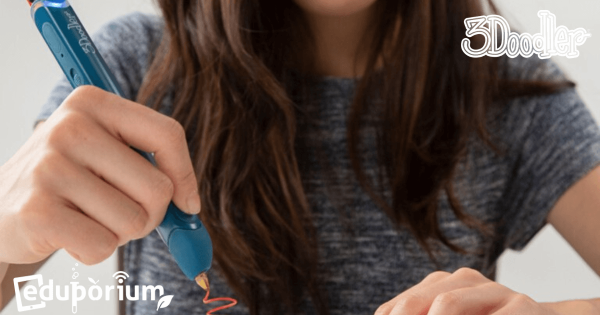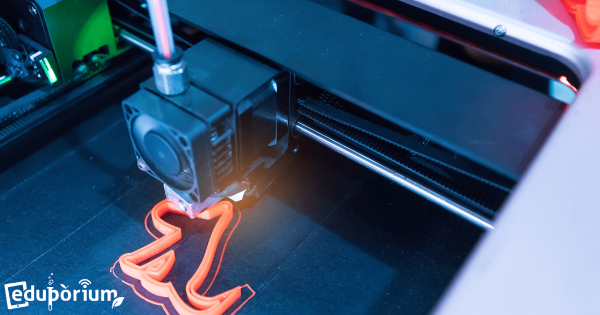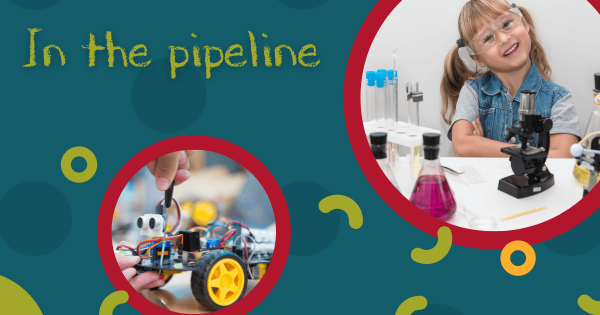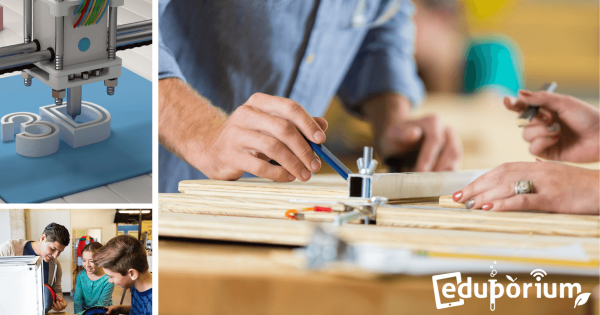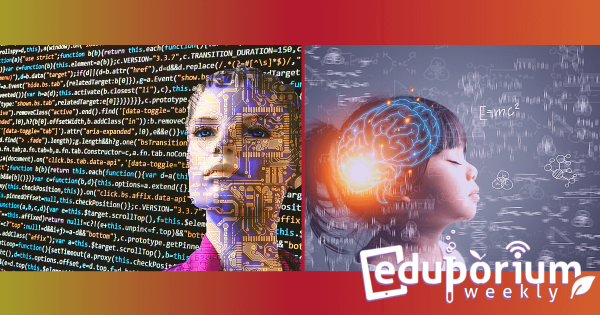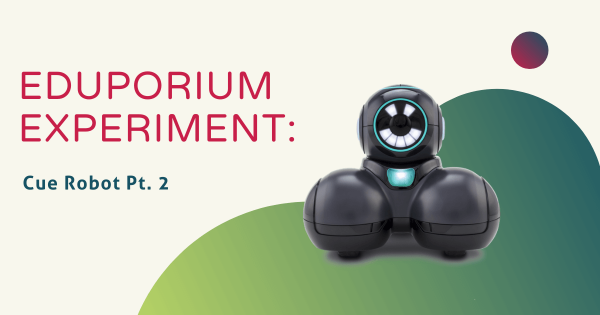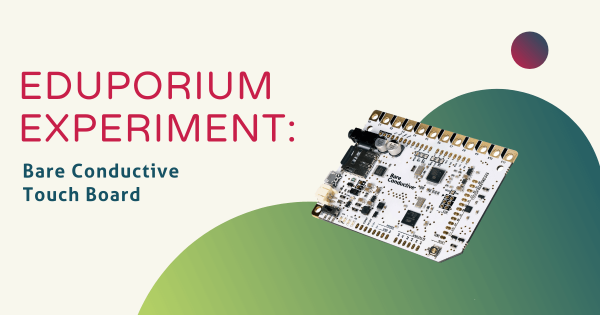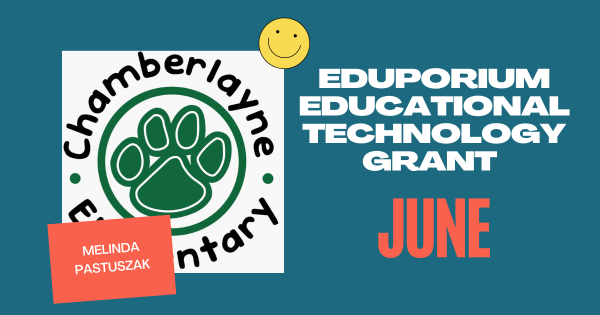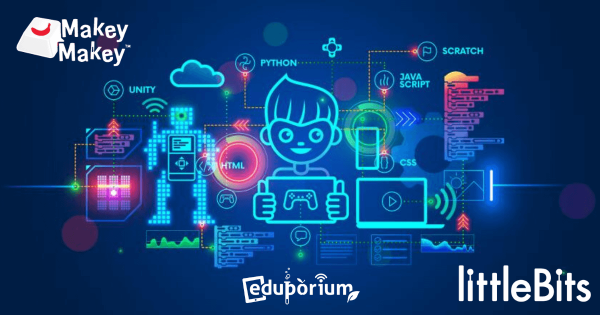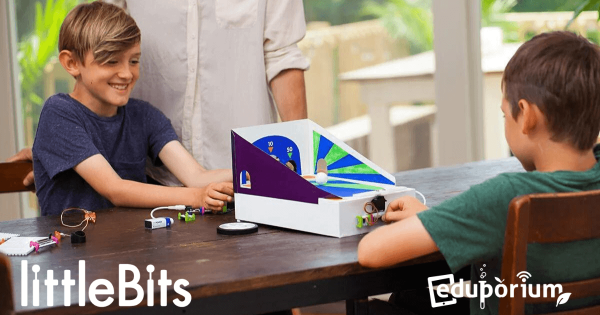From now through Oct. 31, anybody who makes a purchase of $1,000 or more from our store and uses the coupon code 3DOODLER at checkout will receive a FREE 3Doodler Create 3D printing Pen. This is a great opportunity to increase MakerEd possibilities and expand educational innovation for all students involved!
STEAM
A broadened area branching out from STEM education, STEAM typically refers more to the creative side of things. STEM stands for Science, Technology, Engineering, and Math, which also happen to encompass some of the most prominent careers today. If we add an 'A' to make it STEAM, however, now we're incorporating art as well. Though not super closely related to science and technology on the surface, the arts may seem to be a strange element to add into STEM learning. With more opportunities to be creative, however, students can develop many of the key skills they'd need for success in a STEM career. STEAM learning encompasses many different areas—from artistic projects or makerspace endeavors to creatively solving problems. As kids try new, hands-on experiences, they also have more chances to activate inquiry and curiosity. And, these are two key drivers of learning and discovery.
Essentially, moving from STEM to STEAM involves adding extra creativity and opportunities for artistic freedom and exploration. Oftentimes, children will leverage various technologies in STEM or MakerEd projects but they can do even more. Tapping into the STEAM side of things, this gives them a chance to learn how thought-provoking questions and unique design elements can also come into play during their problem-solving processes. Educators could still encourage students to question things and connect problems to solutions—albeit with a more artistic lens. In STEAM projects, children often get to incorporate personalized details that illustrate some of their passions. And, while this self-expression is also important, it's how they authenticate these projects to the next degree that's truly valuable. Browse our STEAM content below for more insights and check out our store for all the tools you'll need.
-
Take 3D Printing Further With An End-To-End Project Library
It can be tough knowing what to do with a 3D printer in the classroom. With MyStemKits, however, it doesn’t have to be. This subscription includes grade-specific lesson plans, one-of-a-kind models, and STEM learning that’s truly interdisciplinary. Here’s how teachers can create curriculum that’s problem-based, standards-driven, and future-facing! -
Eduporium Weekly | Examining the STEM Education Pipeline
The current state of education is, of course, crucial to the future success of today’s students. They need innovative learning opportunities and creative challenges that will help them succeed down the road. What’s equally important in education is what’s on tap next. As a whole, education needs to be continuously evolving to best prepare students. -
Eduporium Weekly | Making A Makerspace Your Way
We say this all the time but a makerspace could be anything you want it to be. Seriously, there is no right or wrong way to design a makerspace. They now often pop up in classrooms, libraries, community centers, basements, closets, or wherever there’s room. The important thing is that students can work with their hands and create something meaningful. -
Eduporium Weekly | Robotics and AI: In Education and Beyond
While it may not be as bad as it was once thought to be, there will almost certainly be jobs lost to technology. While there will likely be jobs created in their place, however, there is no denying that technologies like artificial intelligence will have their place in our lives. They are already very much in it, in fact, with -
Eduporium Experiment | Cue Robot Pt. 2
With this charismatic robot and accompanying app, students can play games, chat, control, and program the Cue in Blockly or JavaScript. They can even pick one of four avatars to represent and track their progress: Charge, Zest, Smirk, and Pep! Each avatar is preprogrammed with unique personalities, expressions, and interactions. -
Eduporium Experiment | Bare Conductive Touch Board
This Fourth of July, we decided to experiment with Bare Conductive’s Touch Board to help spark an interest in circuitry among our readers. The Touch Board is a limitless interface at the heart of some of Bare Conductive’s most innovative STEAM tools. Using it, students can turn touch into sound with the help of conductive materials. -
We've Chosen Our First Monthly EdTech Grant Recipient
Back in June, we announced a new educational technology grant program to award $500 of STEM tools to one deserving recipient every month. Our selection committee met this week and awarded the first grant to Melinda Pastuszak, a teacher with the Chamberlayne Elementary School (Virginia). Mindy is in the process of planning the launch of a new STEAM program! -
Eduporium Weekly | Extending STEAM Education With Music
As we know, STEM has evolved to STEAM, adding art to the mix (as well as some other variations). Technology can be a great way for students to enhance their art classes using tools like conductive paint, virtual reality, or more. It can also be used in music classes, though, creating interactive, exciting, and real world experiences.




